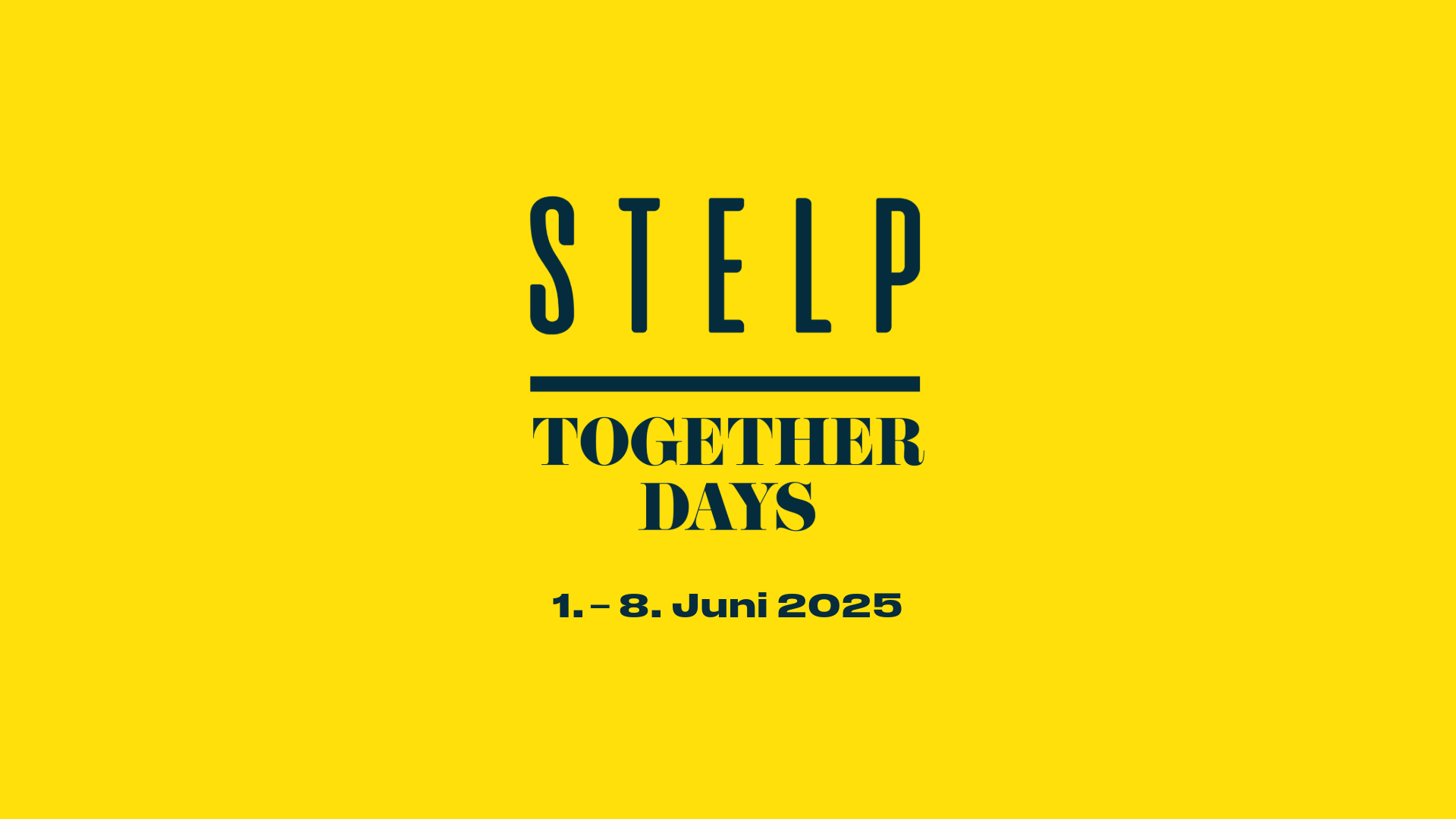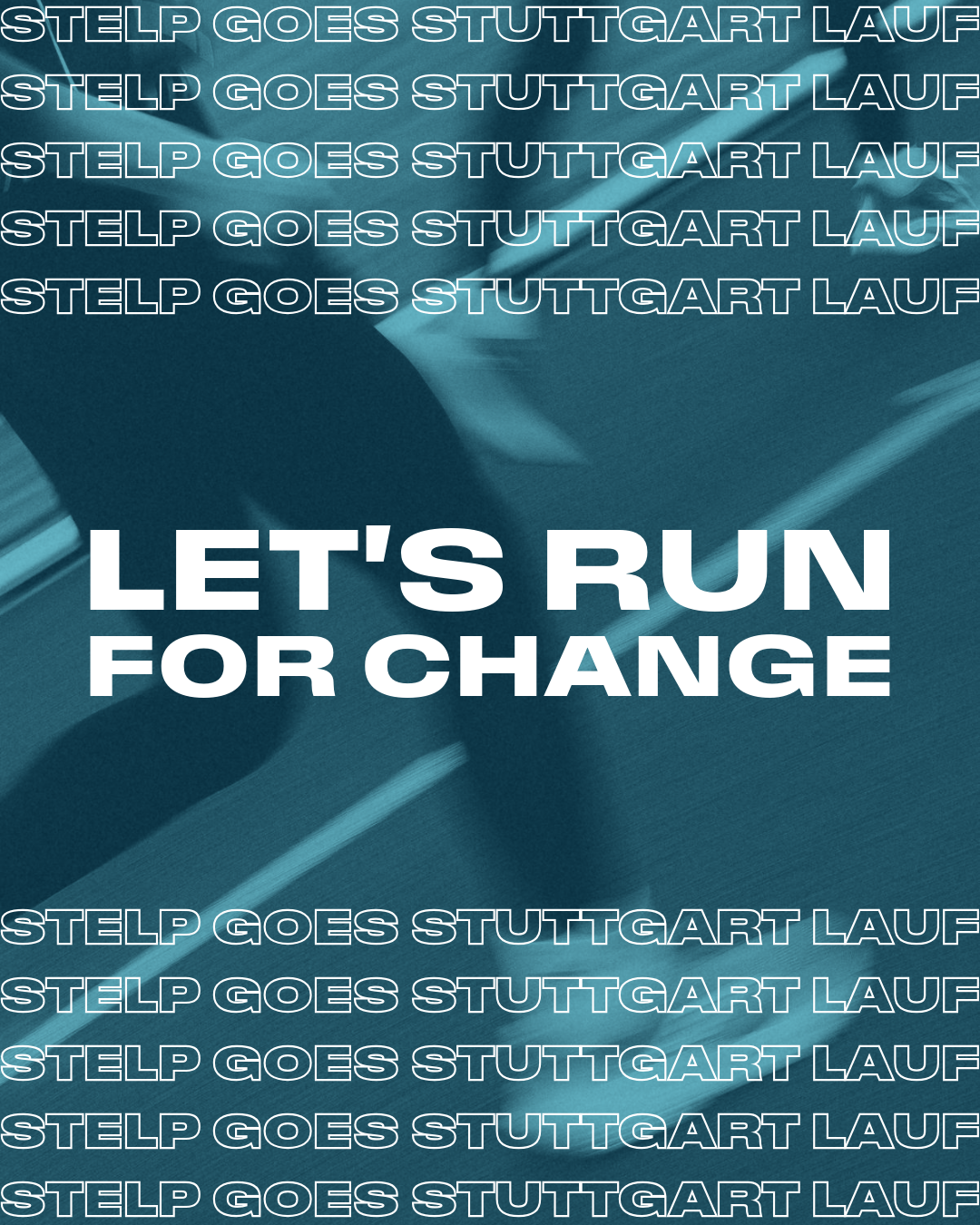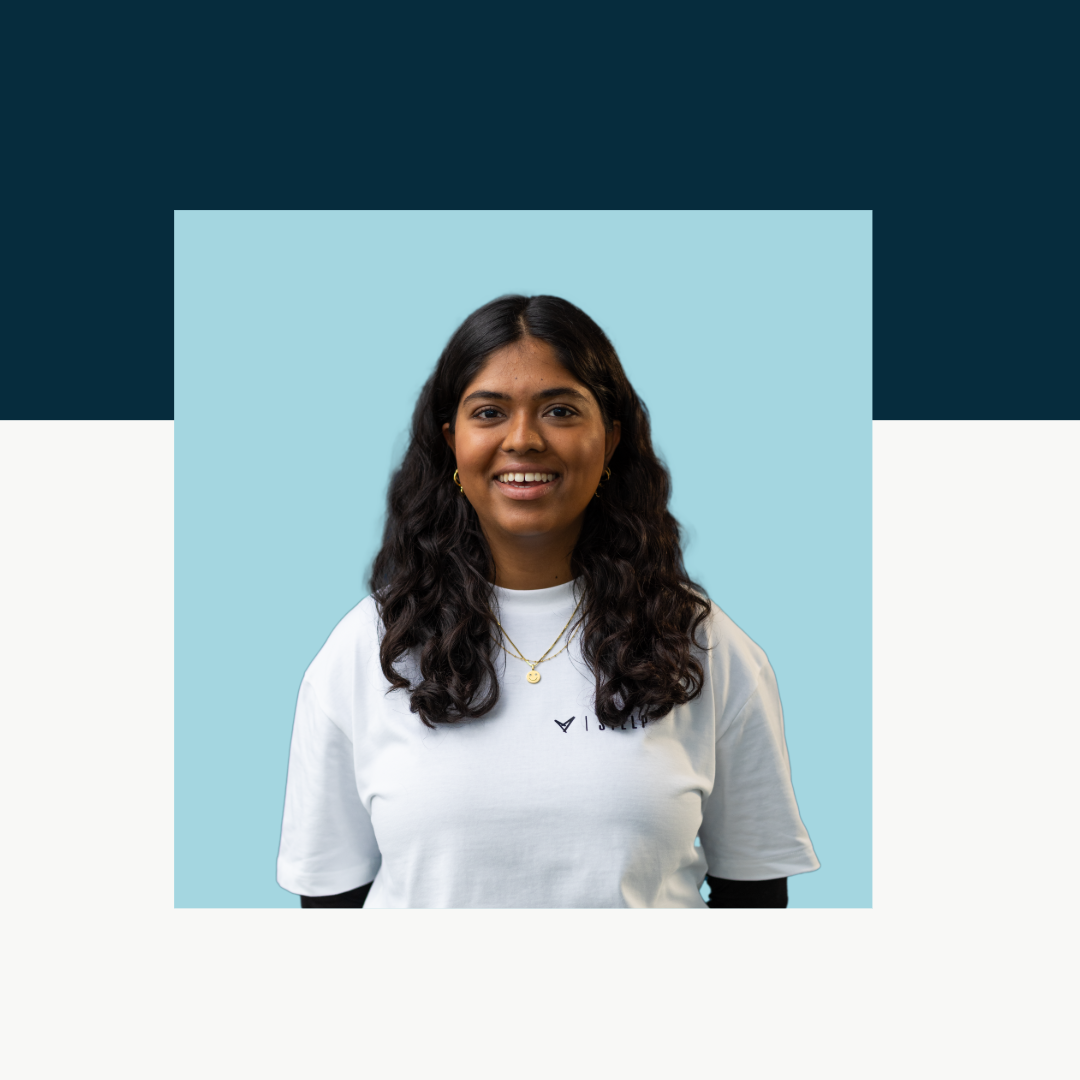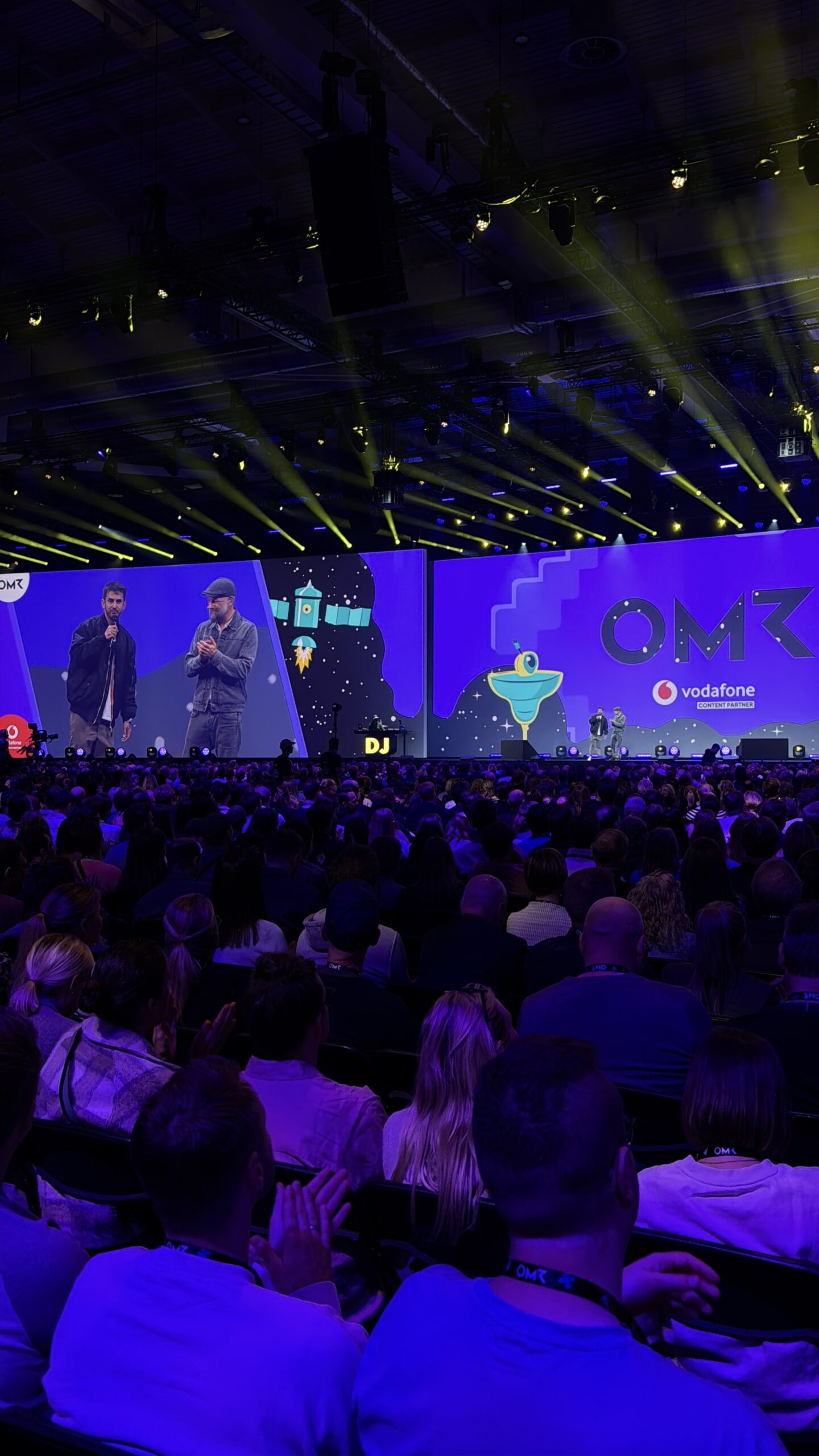Part 1 of 8 from the series by Christina Lopinski
“Asylum or IS,” Rashid says, looking down at his hands. Olive residue sticks under his fingernails. We look down at the ground, Haruna, Cecile, and me. Straw pecks through my gym shorts, a spider climbs over my shoe. Rashid rolls a cigarette, we drink chai, on the horizon we can glimpse the city of Cesme. We sit in the fields next to our camp, olive tree borders olive tree, it’s olive season in Turkey. For hours we sit on the ground between thousands of olives, we are ants, fast and thorough, 300 kilograms of olives do not collect by themselves. Why are you picking olives, I hear my mother say. I thought you were taking care of refugees, sick women, needy children, doing something useful. That’s what I thought, too, the last few days, and I’ve felt frustration because the work is completely different from what I imagined. When my Western arrogance and my helper syndrome, triggered by the media and completely wrong associations with the topic of flight, imagined it. What I have learned in the last four days: Escape is lengthy and cumbersome and quite different than the media image would lead you to believe. Escape is also dead children on the beach, heat blankets and life jackets, diarrhea and hunger, but not only.
“Escape is lengthy and ponderous and very different than the media image would lead you to believe.”
“Sorry for work,” says Rashid, 32, Syrian. We sit under the same tree in the sun. “No problem,” I say, feeling bad for him giving us work instructions. We’re picking silently at first because I have so many questions I don’t know where to start. I don’t want to be rude. Rashid seems to sense my uncertainty. He asks me if I know the German city of Erlangen. “Friends,” he says. And tells me about his time in Germany. He says he lived in Stuttgart for two years after fleeing Syria. He could not bring his family because the law on family reunification has a cap of 1000 people per month. “All alone in the war,” he says, throwing olives into the bucket. All alone. He is referring to his wife, two daughters, and unborn son. I bite my lips so hard it hurts. I want to say I’m sorry, but no words in the world can express the pain I feel. Family reunification now has a face named Rashid. He broke his shin when he went back to Turkey, he said. He shows me a picture of himself in a wheelchair. I just nod and crush an olive between my fingers. That was almost two years ago. Sheiha, Yasmin and Mutea made it to Turkey, Yusuf was born, the family moved to the village. And here we are, Rashid and I, on an olive plantation in the middle of nowhere in Turkey, picking olives as if we’d never done anything else.
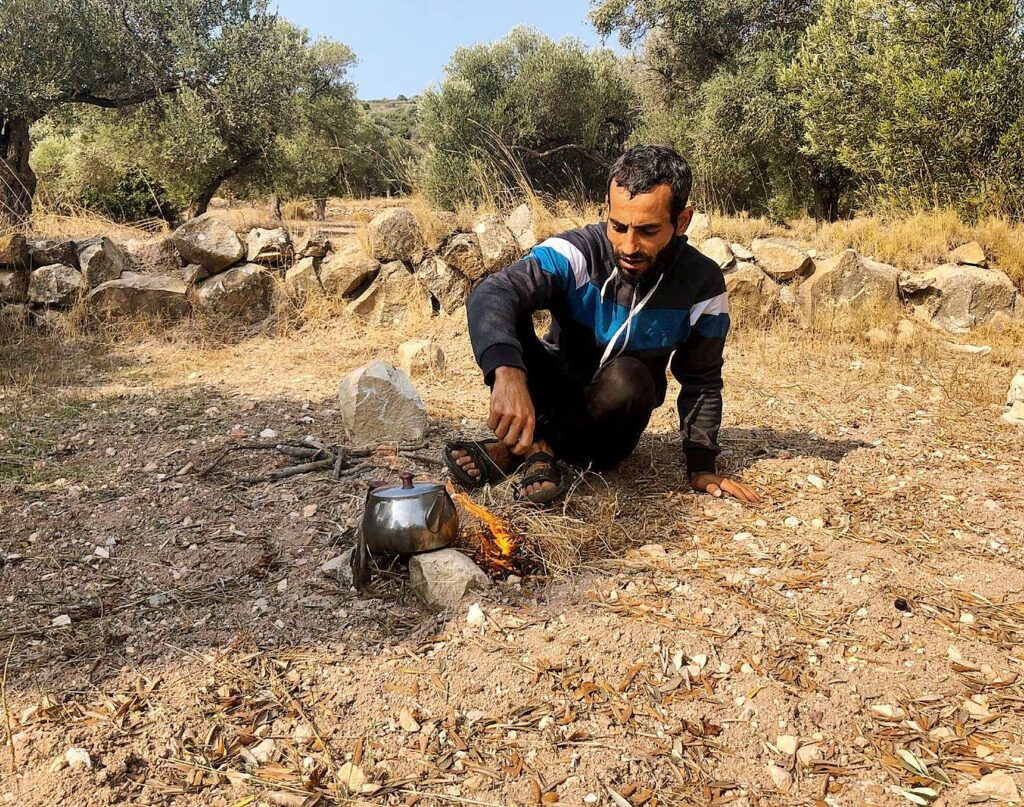
It is difficult for me to write about the topic that touches all layers and systems and that needs to be addressed on so many levels. I want to share here some of the personal that I experience every day. The village where I live works with Barefoot College, a movement from India whose philosophy is ‘help for self-help’. The focus is on refugee women. All who are interested are allowed to visit the village for a time and are trained as ‘solar engineers’. The women learn to build powerbanks, in the long run they should be able to live from it and emancipate themselves from all dependencies with the self-confidence to be able to earn money. And at best, actually make a living from it. Nice idea, I say to Nina over breakfast as she explains the project to me. “Difficult to implement,” she says. Many women in the tent cities we regularly serve do not want to accept the offer. Our village has room for nearly a dozen women. Since I’ve been here, there’s been no one. I still don’t understand the system of recruitment, and the long-term distribution concept is also a mystery to me. I understand the Barefoot idea and agree that aid is most important selectively, but doesn’t help in the long run because it creates dependencies. But do you want to build a powerbank when you’re hungry? I’m curious to see how the project develops while I’m here, and I’m curious to see how the expectations and desires of the women match the vision of the project.
“And why are you picking olives, child? Because we need oil, mama. And because we need money.”
“Who donates broken high heels?” Nina, Cecil, Silke, Haruna and I sit on the floor outside our Warehouse, among boxes and bags filled to the brim with shoes, trying to find pairs. We are a shoe store. Where do the shoes come from, I ask. Donate. So I spend hours digging through mountains of cheese, playing memory. Trying to fix broken shoes. I spin a red high heel in my hand. Maybe he’s giving some woman a treat, I think, and use tape to glue the matching shoes together. Size 38, I write on it. We need rubber boots and boots, winter is coming. We have sandals and high heels. Big sizes are hard to come by. Should men who wear shoes size 45 or larger cut off their toes? And do women trudge across the Balkan route in wedge sandals? I get angry while tying my shoes. Some can’t be fixed, the shoes fall apart. The donation mentality is the height of hypocritical do-gooderism, I think. Donate and feel good about yourself. Many things that arrive here are unwashed and broken. These are not donations, they are garbage. Refugees are people, not animals. It’s disrespectful, not generous, to give away things you would throw away. “A single pair of rubber boots,” Silke says, shaking her head as she turns the yellow children’s boot in her hand.
“It’s disrespectful, not generous, to give away things you would throw away.”
“For you,” Yasmin says, putting a chain around my head. Colorful beads, teşekkür, I say, hugging the girl. My non-existent knowledge of Turkish becomes a problem, with the children I learn a little, with the Turkish women who work here I can’t communicate. Yusuf cries . I take him in my arms, I speak baby talk fluently. I stick my tongue out at him, he laughs and claps his little hands together. We go to the chicken coop and collect eggs. Every day either 10 or 15. Yusuf was born in Turkey, he should go to Germany, someday, Rashid says, joking that I can take him. I catch myself actually thinking about it, I want to take the whole family, I’ve really grown fond of them now. Yusuf plays with my new necklace. My beads are made of wood, I’ve never had a more beautiful piece of jewelry. We walk through the village, past the cats that multiply so fast here, as if they were born just for this. Yesterday I counted 18.
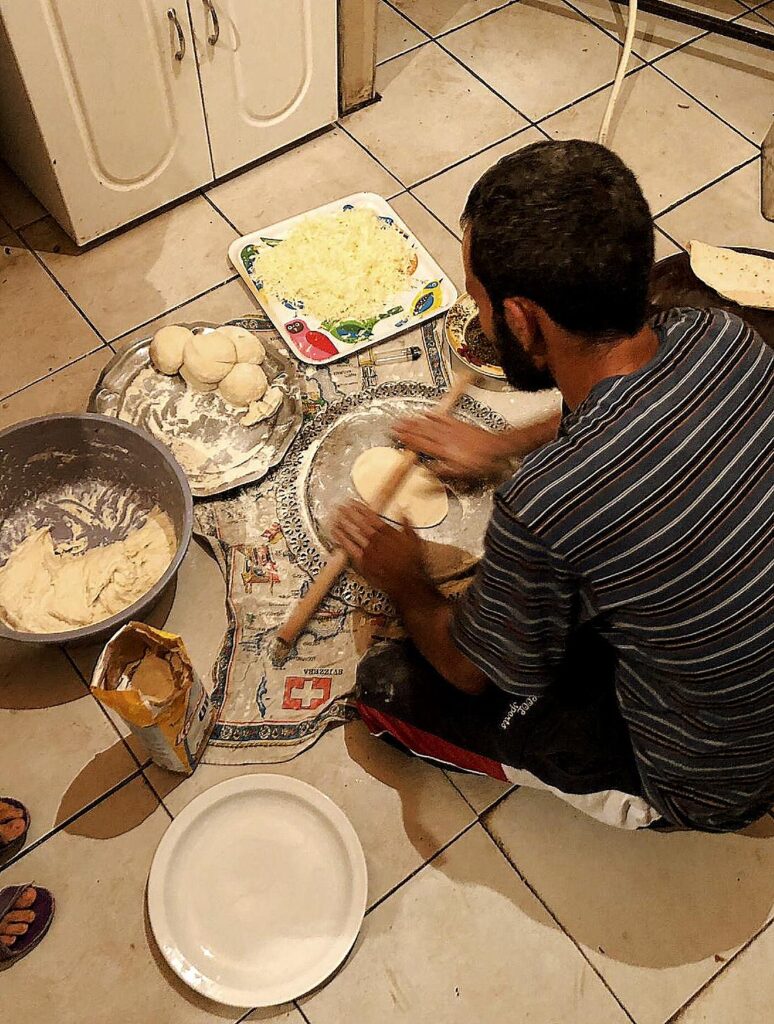
The sun is setting as I carry Yusuf into the kitchen. Rashid sits on the floor rolling dough. Fataja, he says. A dough patty made of flour, oil and yogurt, eaten with sesame sauce and cheese. Once the sun goes down, it’s cold here in camp, and it’s only October. In the first days I have a strong need to sit in a room where there is heating, to lie in a bed, under a blanket, to use a bathroom.
“Escape is not temporary. Flight is not an extreme situation. Flight is everyday life for millions of people.”
Life here takes place outside. I share a container with Nina. We sleep in bunk beds. At night I’m glad of my down sleeping bag, and it’s only October. It’s not easy for me. It’s not easy to take a shower when the sun hasn’t shone and there’s no hot water. It’s not easy living outside, having no privacy and no real job. I miss my blanket and a bathtub, I want to go to the gym and eat what I want and cuddle with who I want and unpack my clothes and flush the toilet properly, I write in my diary on day 1. I have to keep reminding myself that I have a home to return to. That I live here for a time and that I have deliberately chosen to be here. If the most important thing I can do right now is pick olives, because it gives us olive oil that fills us and the women and children, then that’s a good and important job. Refuge is not temporary. Flight is not an extreme situation. Flight is everyday life for millions of people. A cocktail of uncertainty, cold, hunger, residence permits, language barriers and family reunification laws. As Rashid shows me the Turkish residence permit and beams, I hug Yusuf’s small child’s body tightly to my chest. Fleeing is also picking olives.
Note from STELP e.V.: Rashid, who Christina talks about here in the blog post, was also part of our feature that was shown on RTL Aktuell at the end of last year.
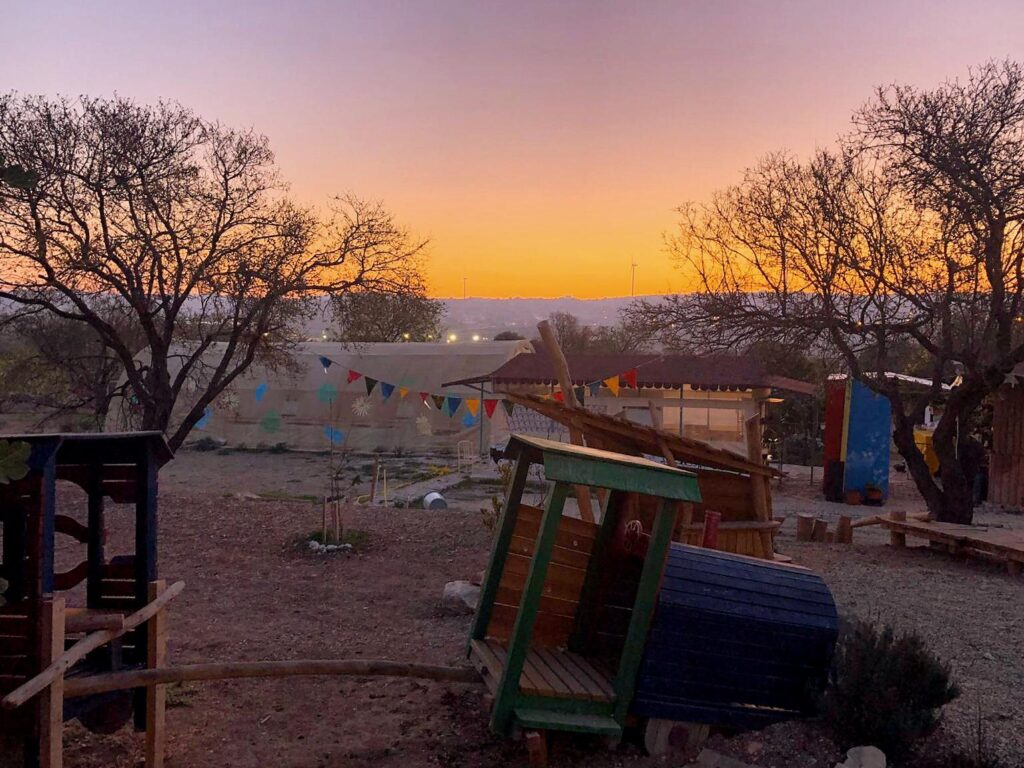
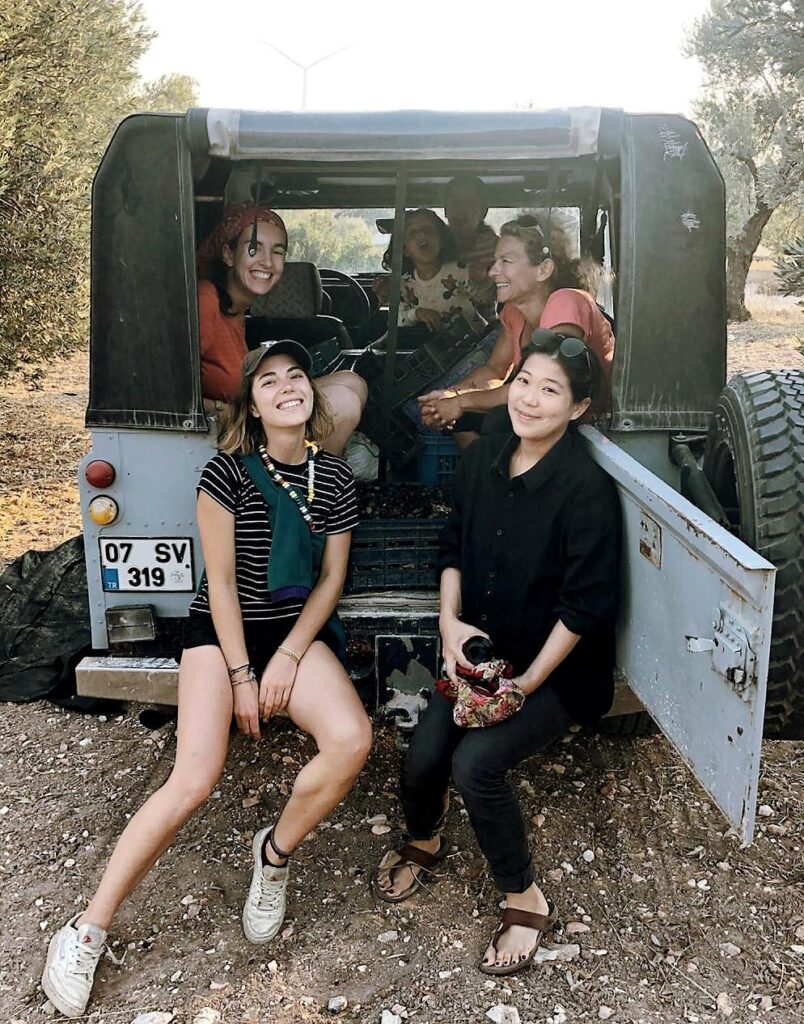
About the author:
Christina Lopinski was a volunteer for STELP in the IMECE village in Cesme/Turkey from October to December 2019. The 24-year-old has lived in Berlin for a long time and during that time wrote for the Berliner Abendblatt, the B.Z. and the Wiesbadener Kurier. She currently works for the Frankfurter Allgemeine Zeitung.
